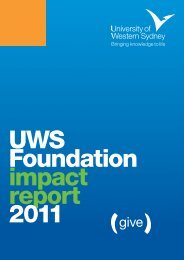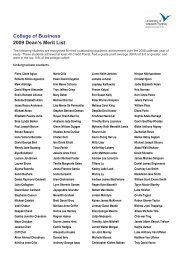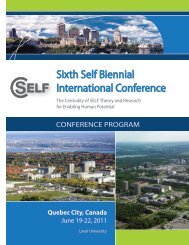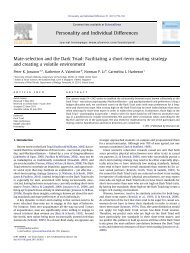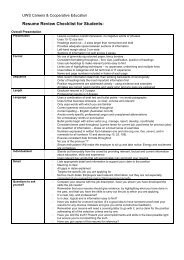Rethinking Multiculturalism Reassessing Multicultural Education
Rethinking Multiculturalism Reassessing Multicultural Education
Rethinking Multiculturalism Reassessing Multicultural Education
- No tags were found...
Create successful ePaper yourself
Turn your PDF publications into a flip-book with our unique Google optimized e-Paper software.
SESSION 7International Academic Perspectives on<strong><strong>Multicultural</strong>ism</strong> and <strong>Multicultural</strong> <strong>Education</strong> Part 2Some Insights on Australian and US <strong><strong>Multicultural</strong>ism</strong> and<strong>Multicultural</strong> <strong>Education</strong>Professor Mary Kalantzis, Department of Curriculum and Instruction, Universityof Illinois, Urbana-Champaign (via videolink)In Australia I was a member of a group of academics and activists who believedthat the country was moving towards a sense of nation that was not tethered toone ethnic group, and that multiculturalism was a contribution to that process.Our approach was a pragmatic one. We worked to convince employers,educators and others that it was in their own self-interest to recognize andharness diversity in productive ways – in terms of providing efficient andeffective services and facilitating higher levels of performance. For exampleactively recruiting women, Indigenous people, Chinese-speakers and otherpeople of more recent immigrant backgrounds, to help create products andservices that people needed as well as to promote harmonious workplaceswithout discrimination and racism, which produce downtime. Some of theseobjectives were met through the development of Human Rights Commissionand Anti-Discrimination legislation; there were also efforts to ensure that theSpecial Broadcasting Service (SBS) remained an independent entity and toencourage, at the same time, the Australian Broadcasting Corporation (ABC) tobe more inclusive in their recruiting practices and programs. In a small countrylike Australia it was possible to reach across many domains: working not only onthe margins or only in the interests of minorities, but to focus on the mainstreamsociety so that minorities could be included, in their difference and therebytransform the national ‘centre’ itself.Several characteristics are distinct when shifting from an Australian to anAmerican context. The category of race, based on pigment – ‘black’ and ‘white’– is difficult for a newcomer: to have to use this language and live within it as‘natural’ is very uncomfortable. Similarly difficult is the American system ofeducation’s heavy emphasis on tests and standards. Civil rights legislation isthe framework for diversity in America and it is very different from the Australianmulticultural agenda. However, something which might be called ‘reflexive civility’or ‘learned cosmopolitanism’ is now central to both Australia’s new nationalcurriculum and the new common core standards in the United States. This mightnot be as strident or demanding of justice in the way civil rights, anti-racism ormulticulturalism has been, but the acceptance and negotiation of difference iscertainly now embedded, as a matter of form, in any new education framework inboth countries.There are vast differences in education across America, as a consequence ofhistoric racism, funding inequalities and the social economic backgrounds ofstudents. The context of Champaign, Illinois where I now live and work revealssome vexing ongoing tug of wars. In the five years since I have been here, theterm ‘multiculturalism’ has not really been one with much currency, rather it isthe term ‘diversity’ that has more power. It refers firstly, to African Americansand then, in addition, to Hispanics and Native Americans. So, in everyday terms,SESSION 7 International Academic Perspectives on <strong><strong>Multicultural</strong>ism</strong> and <strong>Multicultural</strong> <strong>Education</strong> Part 231Book 1.indb 313/12/2012 8:36:13 PM


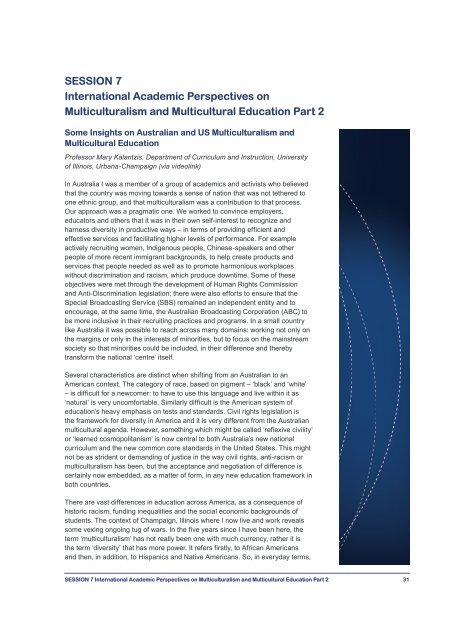
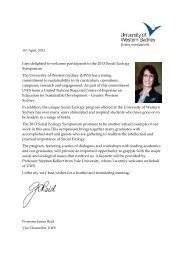
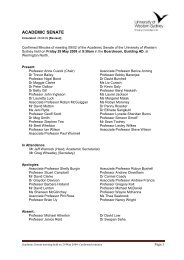
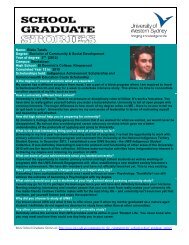
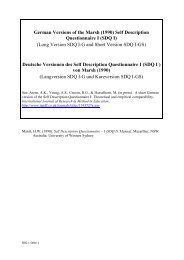
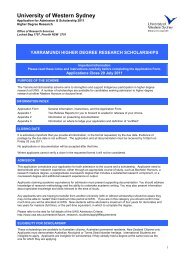
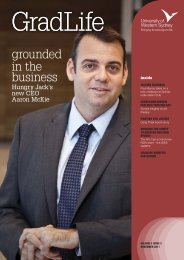
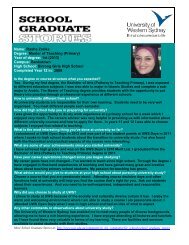
![Glossary of terms for Academic Integration Plans [PDF, 127Kb]](https://img.yumpu.com/46838287/1/184x260/glossary-of-terms-for-academic-integration-plans-pdf-127kb.jpg?quality=85)
